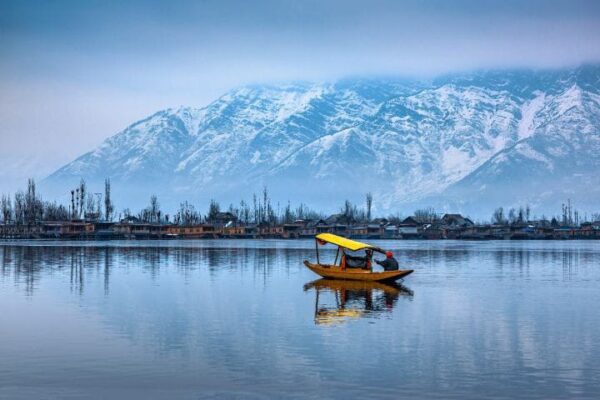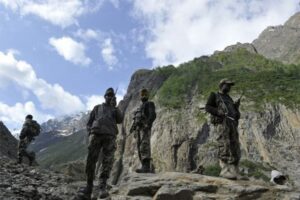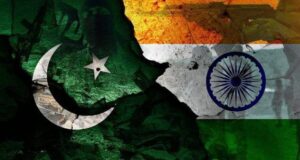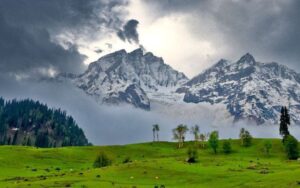
Kashmir Day is observed as the annual reminder of the continuing struggle of the Kashmiri
people, especially on the 5th of February. This day reveals the degree of solidarity expressed by
Pakistan and various nations and citizen bodies throughout the world with the Kashmiris in their
quest for self-determination.
It reminds people of their struggle for self-determination and draws attention to the
long-standing Kashmir issue. This is especially important in Pakistan, where the day’s events
include rallies, seminars, and political speeches highlighting the region’s suffering.
In love with their dignity, dying with hatred for their identity, the Kashmir Crisis, one of the
longest conflicts in the recent history of the world, where the colonial-era decisions give birth to
contentious world orders and a new Afghanistan engulfed with geopolitical paradoxes. To
understand why this day is so significant, one has to understand Kashmir’s history. This blog
examines Kashmir’s history, the present state of affairs, and why the world needs to
pay attention.

Kashmir: Early History
Kashmir, which lies in the northernmost part of the Indian subcontinent, was more a basin of
many cultures, religions, and traditions. It was one of the most popular regions for the various
empires and dynasties at different periods of time due to its strategic geographical location. The
influence of early Hindus and Buddhists gave way to the advent of Islam in the 14th century, and
thereafter, it is always shaping.
The States Period
During the time of British colonial rule, Kashmir was one of the countless princely states, which
had internal autonomy and was under British control for its defense and external affairs. The
ruler at the time of partition in 1947 was Maharaja Hari Singh, a Hindu monarch presiding over a
predominantly Muslim population.
Why Kashmir Day Matters?
Kashmir Day is a day of solidarity with the people of Jammu and Kashmir, which is
observed every year on 5th February.

Global Awareness and Advocacy
Pakistanis and Kashmiris commemorate this day, but international awareness is very limited. It
is only by educating the world on the history and ongoing crisis in Kashmir that we can hope to
see real change
Genesis of the Kashmir Conflict
The partition of British India in 1947 created two states, India and Pakistan.
Partition and Its Accession
The princely states were given the choice to accede to either of the two countries. Maharaja Hari
Singh initially sought to remain independent. However, an invasion by tribal militias from
Pakistan led him to sign the Instrument of Accession to India in exchange for military assistance.
This triggered the 1st Indo-Pakistani war.

United Nations Intervention
The conflict necessitated United Nations intervention, resulting in the 1949 ceasefire agreement.
The ceasefire line, the Line of Control (LoC), has divided Kashmir into areas administered by
Pakistan and by India. The UN also called for a plebiscite to determine the future of Kashmir, a
referendum that remains unfulfilled to date.
Subsequent Wars
Kashmir has been the cause of many wars between India and Pakistan; it has scored notably in
1965 and in 1999. The countries consider the whole region theirs but govern just a part of it. This
dispute is the root cause of a heavily militarized zone and continuous confrontations along the
LoC.
Kashmir Day: Origins and Observance
In order to realize what Kashmir Day means, one must know about this particular history and the
roots of the Kashmir conflict as well as the prevailing conditions.
Foundation of Kashmir Day
Kashmir Solidarity Day, as it came to be called, had its first call for observance in 1990 by Qazi
Hussain Ahmad, at that time leader of the Jamaat-e-Islami party in Pakistan, so that he could add
his voice to all the other voices that called for support for the Kashmiris. The government of
Pakistan later declared 5th February a national holiday in observance of such an event.
The Contemporary Kashmir Crisis
The international community continues to remain divided over the Kashmir conflict.
Foundation of Kashmir Day
The first declaration of Kashmir Solidarity Day was made by the leader of Jamaat-e-Islami
Pakistan, Qazi Hussain Ahmad, in 1990. Later, it was announced by the government of Pakistan
that February 5th would be the national holiday for this purpose.
Significance and Activities
The range of activities on this day includes:
- Rallies and Demonstrations: These manifestations include public gatherings all over
Pakistan and in Pakistani-administered Kashmir to show solidarity against the human
rights violations in Indian-administered Kashmir and agitate for the right of
self-determination of the people of Kashmir. - Media Programs: Programs specialized in explaining the origin of the Kashmir dispute
and the sufferings of the people therein would be directed by television and radio
channels. - Educational Events: Seminars and discussions would involve youth awareness on the
Kashmir issue through educational institutions.
Understand the Kashmir Issue in Today’s Context
The issue of Kashmir is still unresolved, with both India and Pakistan claiming the region
in full.
Political and Human Rights Issues
Tensions have heightened since 2019, when India revoked Article 370, which had granted
Kashmir special autonomy. Reports of human rights abuses, military crackdowns, and
communication blackouts have been condemned around the world.
International and Regional Organizations
Profound and grave abuses in Kashmir have been documented by organizations such as Amnesty
International and the UN Human Rights Council. Yet all such cries for justice fall in the
backdrop of geopolitical interests leading Kashmiris to perennial conflict.
The Present Kashmir Crisis
Concerns Regarding Human Rights International organizations have raised concerns over human
rights violations in the region.
Revocation of Special Status
The Indian government revoked Article 370 of its Constitution in August 2019 and thus removed
the special autonomy afforded to Jammu and Kashmir.
- Security Lockdown: There was a severe military lockdown regarding movement, which
included a record increase in armed personnel along with marching. - Communication Blackout: An entire service related to calling and the Internet, which
had a major impact on the daily routine of the people and their access to information. - Political Detentions: The political leaders were denied their liberties along with many
activists in order to prevent any sign of possible unrest.
Some of the issues highlighted in reports include
- Excessive Use of Force: Allegations against security personnel regarding the excessive
use of force with civilians, including the use of pellet guns, resulted in injuries and
blindness. - Arbitrary Detentions: Detainees having no formal charge against them under law, such
as the Public Safety Act. - Freedom of Expression: Restrictions on press freedom and curbs on journalists who
report from the region.
International Perspectives
Some states consider the issue an internal matter for India, while others call for dialogue
between India and Pakistan. The United Nations continues to call for respect for human rights
and a peaceful resolution of the issue through dialogue.
The Path Forward: Seeking Resolution
Meaningful engagement between India and Pakistan is essential for a sustainable resolution.
Confidence-building measures starting from the likes of trade initiatives and people-to-people
contact may be used to create the expectation for more serious negotiations.
Role of the International Community
- Mediation Efforts: Presenting neutral platforms for discussions and mediating talks
between the conflicting parties. - Monitoring Human Rights: Should set up independent bodies to monitor and report on
the situation regarding human rights in the region. - Encouraging Plebiscite: To push for the initiation of the long-proposed plebiscite so that
the will of the Kashmiri people can be ascertained.
Empowering Voice of Kashmir
Any resolution must keep as its first priority the aspirations of the Kashmiri people. Accordingly,
granting these people representation in any dialogue, while fortifying their right to
self-determined, becomes essential for the guarantee of lasting peace.
Final Thoughts
The issue regarding Kashmir must be resolved through peaceful settlement, dialogue, respect for
human rights, and international mediation. The observation of Kashmir Day signifies to us that
the world can never close its eyes towards injustice. Until their right to self-determination is
achieved by Kashmiris, their struggle will remain a test of the conscience of the global world.
In addition to serving as a reminder of the unresolved status of the Kashmir conflict, Kashmir
Day is also a call to action among the international community. Acknowledging the historical
context, recognizing its present challenges, and committing to a peaceful resolution are the
essential steps that address the aspirations of Kashmiri people towards a stable region.

